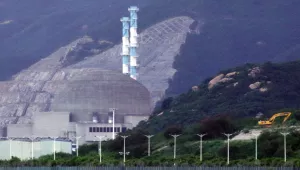Energy Policy Seminar: Henry Lee & Daniel Schrag on "China's Pathway to Decarbonization"
If the world is going to prevent the most catastrophic consequences of climate change, China, as the largest emitter of greenhouse gases, must play a major role. Although its emissions are still rising, China has announced its commitment to reaching net-zero carbon emissions by 2060. Given its enormous coal-dependent infrastructure, large heavy manufacturing base, and rapid rate of urbanization, transitioning away from fossil fuels will be very challenging.
Join us for an Energy Policy Seminar featuring Henry Lee, Director of the Environment and Natural Resources Program and Senior Lecturer in Public Policy at HKS, and Daniel Schrag, Co-Director of the Science, Technology, and Public Policy Program and Sturgis Hooper Professor of Geology and Professor of Environmental Science and Engineering at Harvard University. Using insights from their new book, Foundations for a Low-Carbon Energy System in China, Professors Lee and Schrag will discuss the major obstacles to China's climate commitments, as well as the policy decisions it can make today to facilitate deep decarbonization several decades from now. Q&A to follow.
Attendance: This event is open to the public and hosted on Zoom. For those who cannot attend live, the seminar will be recorded and available to watch on this page.
Accessibility: Persons with disabilities who wish to request accommodations or who have questions about access, please contact Liz Hanlon (ehanlon@hks.harvard.edu) in advance of the session.
Registration: Please RSVP at the link below. Registration will remain open until the event begins.



